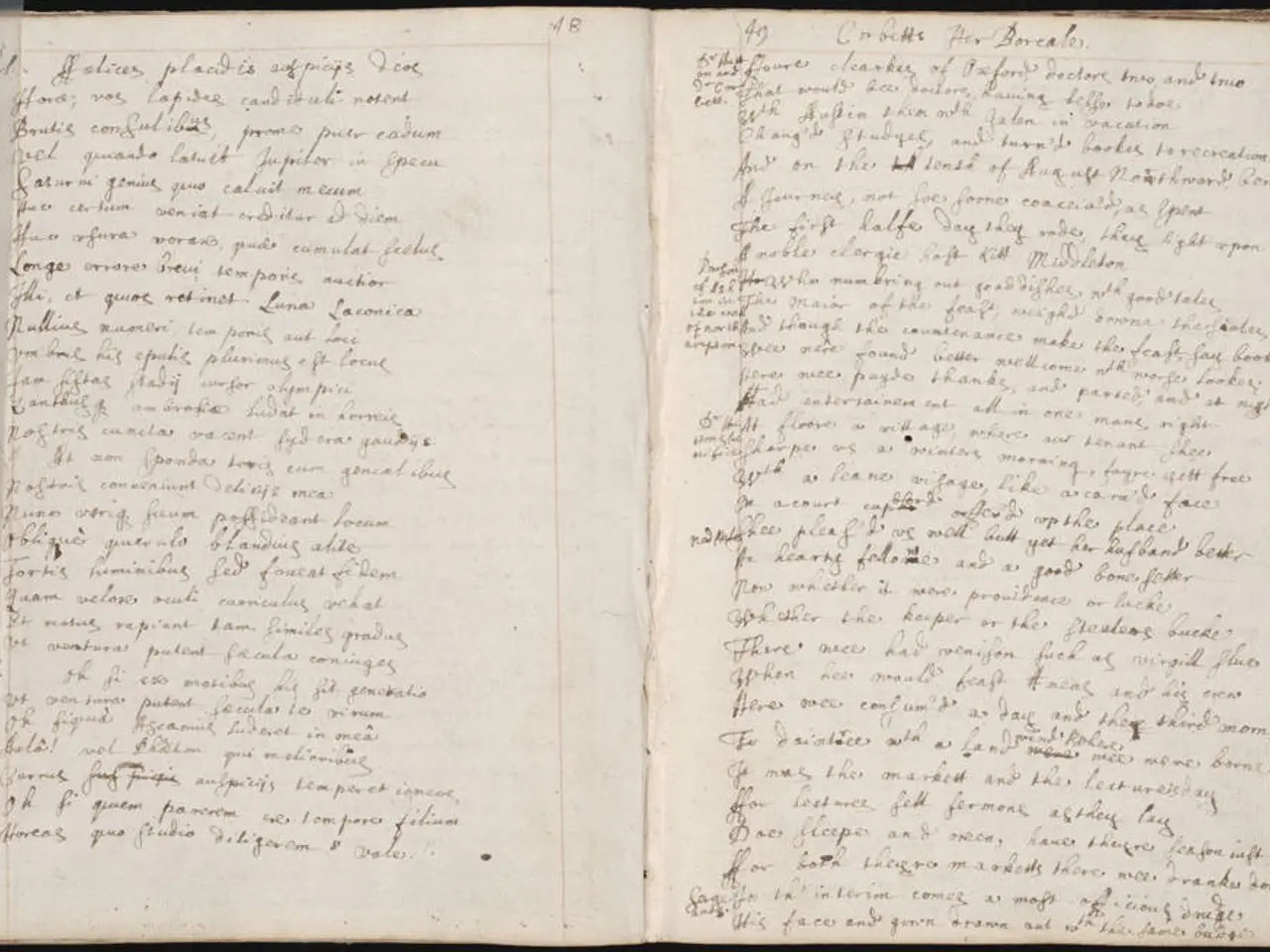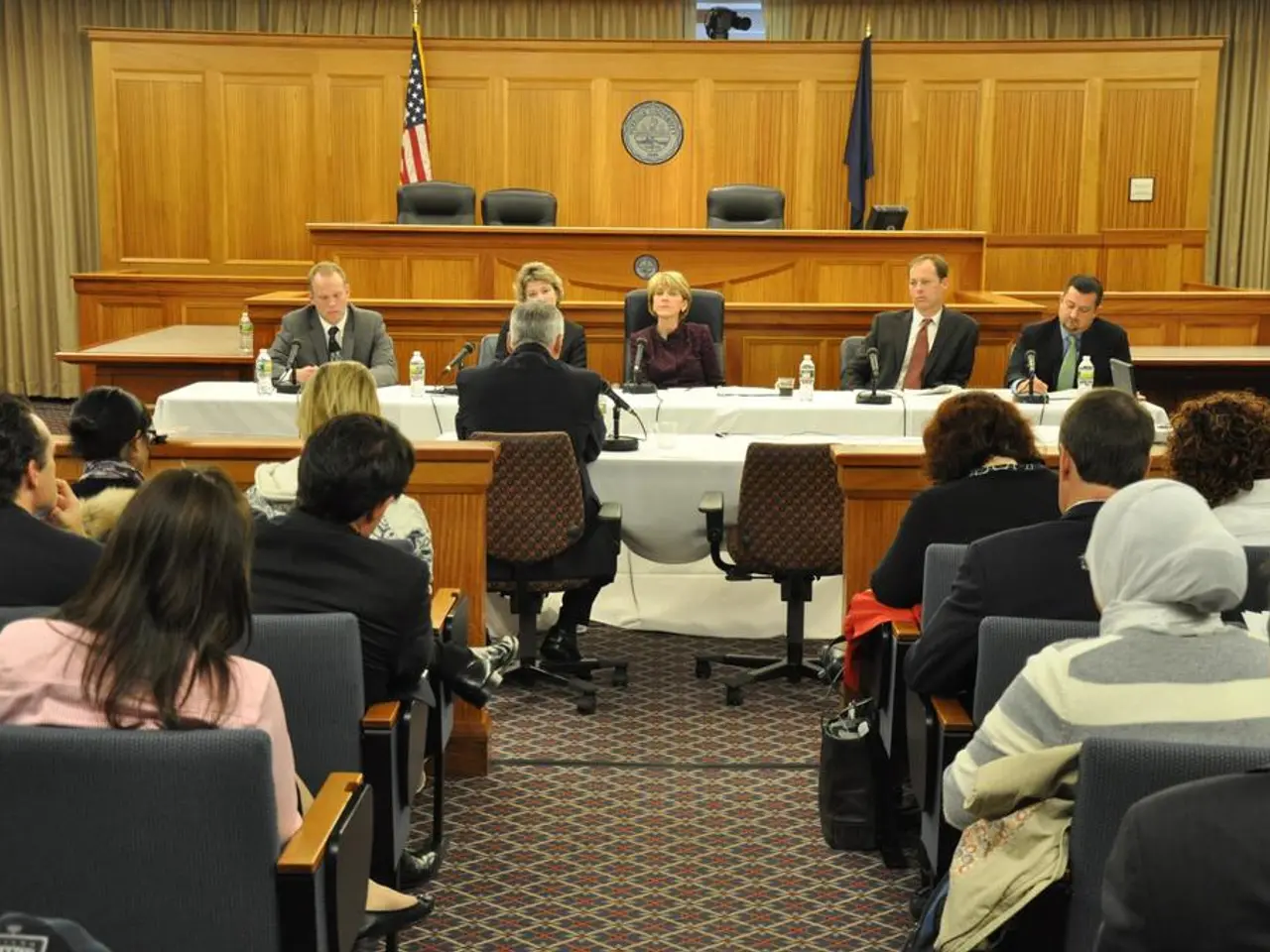No trace of plagiarism discovered in Brosius-Gersdorf's work.
In a dramatic turn of events, plagiarism allegations against constitutional law expert Frauke Brosius-Gersdorf have caused a political crisis, threatening the appointment of top judges at Germany's Federal Constitutional Court. The controversy, which emerged just before the planned vote for her election on July 11, 2025, has deeply divided German politics and tarnished the government’s summer schedule.
The unexpected plagiarism claims, widely described as unsubstantiated and false[1][2][4], were raised against Brosius-Gersdorf's doctoral thesis. As a result, the CDU/CSU parliamentary group removed her election from the Bundestag agenda at short notice, refusing to support her candidacy despite prior agreement in the relevant committee. This unprecedented move meant that the required two-thirds majority for electing Brosius-Gersdorf and two other judges could not be reached, causing an unexpected postponement of all three appointments[1][4].
The controversy has sparked widespread concern among the academic community. Nearly 300 legal scholars signed an open letter condemning the proceedings as "poorly prepared" and "unobjective," emphasizing Brosius-Gersdorf’s strong professional reputation and denouncing the plagiarism claims as defamatory and politically motivated[2].
In response to the allegations and political tumult, Brosius-Gersdorf publicly defended herself in an interview and a written statement. She rejected labels placing her on the political extremes and characterized the plagiarism claims as misleading and damaging to both her and academic integrity[2].
No formal legal opinion or judicial ruling regarding the plagiarism charges has been publicly reported, and the allegations are portrayed largely as a political tactic rather than a substantiated scholarly or legal accusation per the available information[2][3][5].
The plagiarism allegations against Brosius-Gersdorf were raised just before the planned election of judges in the Bundestag. Her dissertation at the University of Hamburg was submitted in 1997, while her husband's habilitation thesis was completed in November 1997 and submitted in the summer semester of 1998 at the same university[3]. Brosius-Gersdorf had commissioned a review of her work with her husband Hubertus Gersdorf after the allegations were raised.
The brief legal opinion concluded that even if similarities in footnotes, headings, and text passages were assumed, they neither constitute a plagiarism allegation nor do they call into question the scientific nature of the works[4]. Despite this, the pressure against Brosius-Gersdorf had become too great within the Union, causing the parliamentary group to no longer guarantee the agreed support from the coalition partner[1].
The political fallout from the plagiarism allegations extends beyond the Federal Constitutional Court. CDU Bundestag MP Saskia Ludwig has criticized SPD faction leader Matthias Miersch for not withdrawing Brosius-Gersdorf's candidacy. Ludwig stated that the signals were clear that MPs cannot elect Brosius-Gersdorf, and a large part of the population felt the same[1].
The planned election of two new female judges and one male judge for Karlsruhe was unexpectedly removed from the Bundestag's agenda on Friday. The controversy has raised broader concerns about ideological campaigns influencing parliamentary decisions and the potential impact on the integrity of the judicial appointment process.
In a surprising twist, Bishop of Bamberg, Herwig Gössl, offered a personal conversation to Frauke Brosius-Gersdorf to clear up misunderstandings after she criticized his sermon[5]. Gössl spoke about the protection of unborn life in his sermon but emphasized that he never personally attacked or defamed Brosius-Gersdorf or questioned her competence as a jurist or her personal integrity[5].
As the political landscape in Germany continues to shift, the plagiarism allegations against Frauke Brosius-Gersdorf remain unproven, heavily contested by the academic community, and perceived primarily as part of a wider ideological dispute within German politics[1][2][5]. The future of her candidacy and the appointment of top constitutional judges hangs in the balance, with the academic community and the public closely watching developments unfold.
- The controversy over the plagiarism allegations against Frauke Brosius-Gersdorf has not only affected policy-and-legislation related to the appointment of top judges at Germany's Federal Constitutional Court but has also deeply infiltrated the realm of general-news and politics, as it has divided German politics and tarnished the government’s summer schedule.
- The unexpected postponement of the planned election of two new female judges and one male judge for the Federal Constitutional Court has raised broader concerns about ideological campaigns influencing parliamentary decisions, and the potential impact on the integrity of the judicial appointment process is under close scrutiny by both the academic community and the public.





